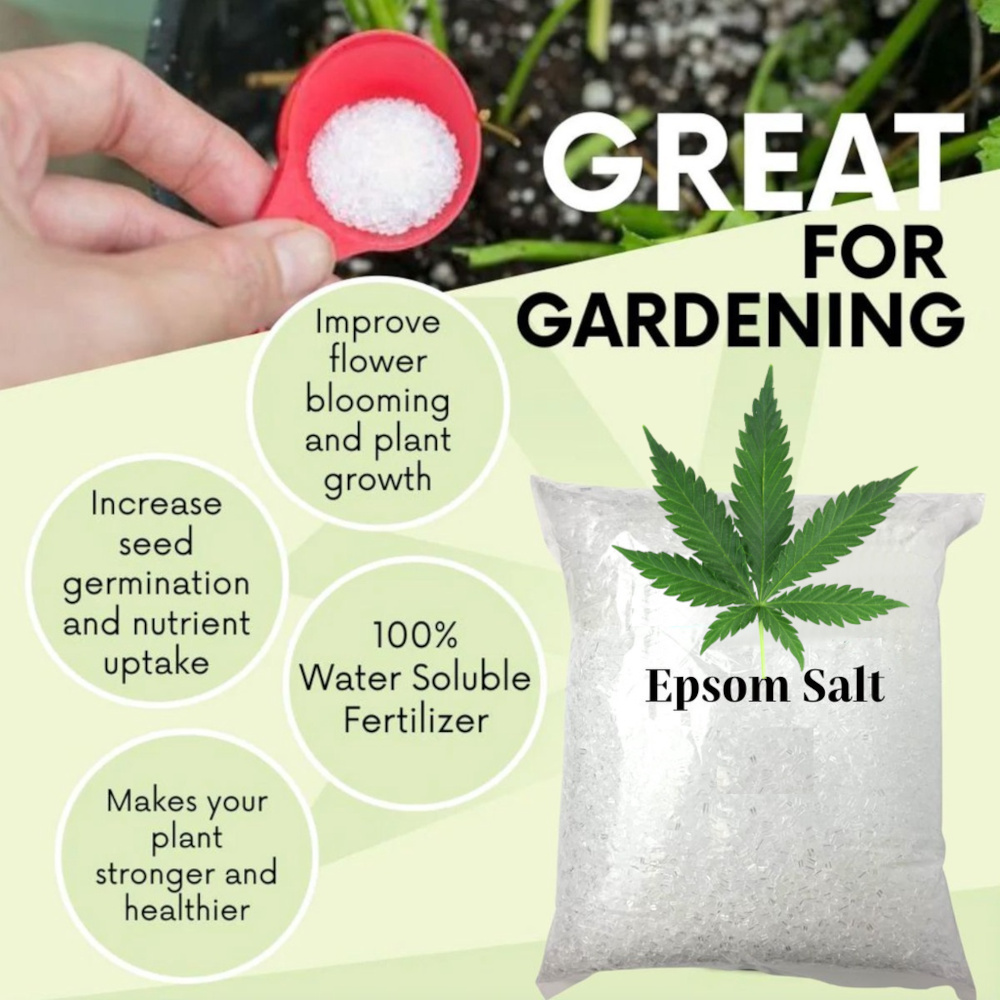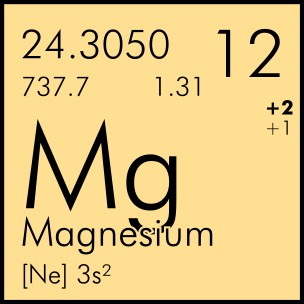What Is Epsom Salt And Why Is It So Important For Cannabis Plants?
Epsom salt is a type of magnesium sulfate that is commonly used as a soil additive in gardening and agriculture, including cannabis cultivation. Epsom salts for Cannabis plants are important because magnesium is a crucial nutrient that plays a role in several key plant processes, such as photosynthesis and the activation of enzymes. Without enough magnesium, plants can suffer from yellowing leaves and stunted growth. Adding Epsom salt to soil or using it as a foliar spray can help ensure that cannabis plants receive the magnesium they need to thrive.
The Right Time To Incorporate Epsom Salts
The right time to incorporate Epsom salts into the soil for cannabis plants is during the vegetative stage, before flowering. This is because the plant is actively growing and has a higher demand for nutrients, including magnesium. You can add Epsom salts to the soil when you first plant the seeds, or you can top-dress the soil later on in the vegetative stage. If you choose to use a foliar spray, it can be applied once every 2-4 weeks during the vegetative stage. It is important to remember that too much Epsom salt can be harmful to plants, so it is recommended to follow the manufacturer’s instructions and use it in moderation.
The importance of magnesium to plants
Magnesium is an essential nutrient that is critical to the health and growth of plants. Some of the key functions and benefits of magnesium include:
- Photosynthesis: Magnesium is a central component of chlorophyll, the molecule that is responsible for capturing light energy and converting it into chemical energy through photosynthesis.
- Enzyme activation: Magnesium helps activate enzymes that are involved in various metabolic processes, such as respiration and nitrogen fixation.
- Cell division and growth: Magnesium plays a role in the division and elongation of cells, which is essential for plant growth.
- Stress tolerance: Magnesium helps plants withstand various environmental stresses, such as drought, high temperatures, and high light intensity.
- Disease resistance: Magnesium helps boost the plant’s immunity to disease and pests by enhancing its natural defense mechanisms.
Why do plants need Sulfur?
Plants need sulfur for several important functions, including:
- Protein synthesis: Sulfur is a key component of amino acids, which are the building blocks of proteins.
- Enzyme activation: Sulfur helps activate enzymes that are involved in various metabolic processes, such as photosynthesis and respiration.
- Root development: Sulfur plays a role in the development of root systems, which helps plants absorb water and nutrients more effectively.
- Disease resistance: Sulfur helps boost the plant’s immunity to disease and pests by enhancing its natural defense mechanisms.
- Seed production: Sulfur is important for the formation of seeds and their germination, as well as the production of oils and fragrances.
How Much Epsom Salt for Plants To Apply And How?
The amount of Epsom salts to apply to your cannabis plants depends on the type of soil you are using, as well as the stage of growth. A general guideline is to use 1 tablespoon of Epsom salt per gallon of water for a soil drench, or 2-3 teaspoons of Epsom salt per gallon of water for an Epsom salt foliar spray.
When incorporating Epsom salt into the soil, you can dissolve it in water and then pour the solution evenly over the soil. For a foliar spray, you can mix the Epsom salt in water, then spray the solution onto the leaves of the plants. Be sure to spray both the top and bottom of the leaves for maximum absorption.
It is important to remember that too much Epsom salt for cannabis can be harmful to plants, so it is important to follow the manufacturer’s instructions and use it in moderation. Additionally, it is always a good idea to test the soil regularly to ensure that the magnesium levels are in the optimal range for your plants.


